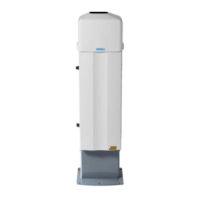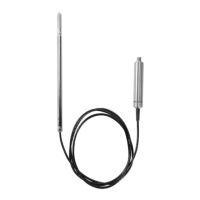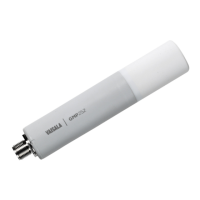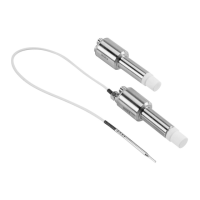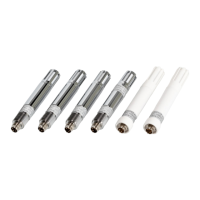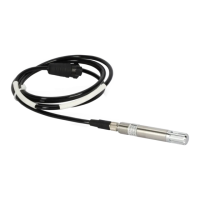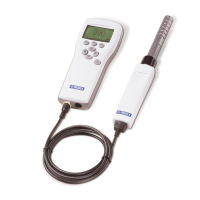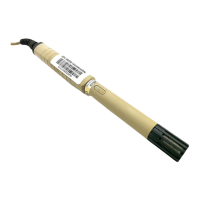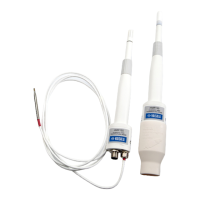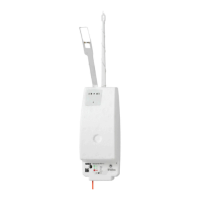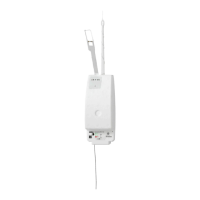6. For a connected sensor, the diagnostic message at start-up is Normal operation or NO
SAMPLE if the process pipe is empty. If another diagnostic message is shown instead,
see Diagnostic message priorities (page 97).
7. The TEMP value shows the current process temperature.
8. To check the value and the correct setup of the two mA output signals, select
DESCRIPTION in the Main menu and then mA OUTPUTS in the Description menu, see
Viewing system information (page 55).
9. If internal relays or switch inputs are used, you can check their settings through the
Description menu, see Viewing system information (page 55).
6.1.2 Calibration check
Wait until normal process conditions occur. The concentration reading is precalibrated at
delivery and a copy of the Sensor calibration certificate is inside the Indicating transmitter. If
the diagnostic message is Normal operation but the concentration reading does not agree
with the laboratory results, see Calibrating concentration measurement (page 72).
6.1.3
Testing prism wash
1. Check that the steam or water washing parts are connected.
2. In the Main display, press MENU. Then press 3 (to give the command SENSOR STATUS).
In this sensor status display by pressing the soft key WASH. If soft key WASH does not
appear, no internal relay is configured for this purpose.
3. Check the n
D
reading, for a successful wash it must drop below 1.34 during steam wash
and drop to approximately 1.33 during water wash.
Before testing prism wash, check that there is liquid in the pipe in front
of the refractometer sensor.
CAUTION!
More information
‣
Prism wash systems (page 39)
6.2
Using indicating transmitter
The indicating transmitter DTR receives the refractive index value n
D
and the process
temperature from the sensor. Starting from these values, it calculates the concentration of
the process media for display and further transmission. The DTR can also be programmed to
give alarm for high or low concentration. If the refractometer has a prism wash system, the
DTR can control the wash with its built-in timer.
More information
‣
Configuration and calibration (page 59)
Chapter 6 – Startup and use
51
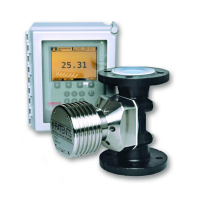
